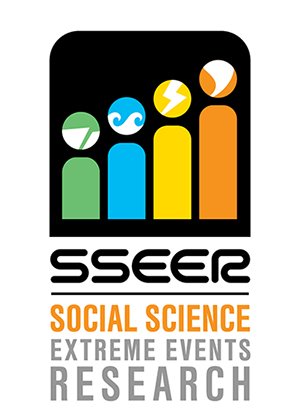FOR IMMEDIATE RELEASE
NSF-funded COVERGE offers awards for COVID-19 social science research
BOULDER, Colo., March 28, 2020 Based on the outpouring of interest from the social science research community and the facilitys mission to advance convergence science for the benefit of humanity, CONVERGE is offering $1,000 awards to those who wish to launch COVID-19 Working Groups for Public Health and Social Sciences Research.
CONVERGE and the Social Science Extreme Events Research (SSEER) Network will fund up to 30 COVID-19 Working Groups focused on issues and advancements in methods, ethics and empirical topics. CONVERGE is part of NSFs Natural Hazards Engineering Research Infrastructure (NHERI) network.
Applications for Working Groups will be accepted between April 4 and April 13, 2020. The funding announcement for Working Groups will be made no later than April 17, 2020. Working Groups and their members will be featured on the CONVERGE website and through the SSEER network to highlight the activities and scientific leadership of the group.
Researchers who are interested in leading or joining a Working Group are encouraged to take part in the next CONVERGE Virtual Forum on Friday, April 3, from 3:00 to 4:30 p.m. MDT. During this forum, researchers will have the opportunity to share ideas for Working Groups while connecting with one another. Working Group application requirements will be discussed and participants will begin the process of prioritizing areas of pressing societal and scientific concern.
The requirements for the COVID-19 Working Groups include:
- Have a clear focus area that will contribute to knowledge that can benefit science and humanity;
- be led by a public health researcher or a researcher in the social, behavioral or economic sciencespreference will be given to those who are members of SSEER;
- involve a diversity of researchers from at least three different disciplines from either inside or outside the social sciences to encourage convergence science approaches;
- indicate one of the following categories:
- Actively Recruiting Working Group (in early stages of formation and actively recruiting collaborators)
- Open Working Group (core Working Group is formed and is open to accepting new collaborators)
- Closed Working Group (Working Group is formed and not open to additional collaborators)
- provide a brief budget justification for how the Working Group will use the $1,000 award to advance their efforts;
- submit a one- to two-page research agenda-setting paper by no later than June 19, 2020, that highlights key ethical, methodological or empirical gaps that could be addressed by the broader research community; this paper will be published on the CONVERGE website.
Working Groups are encouraged that focus on specific areas of inquiry or topics of societal concern. Examples include:
- empirical considerations such as anti-Asian backlash, mental health implications of social isolation, impacts on women- and minority-owned businesses, novel risk communication strategies, pandemic and natural hazards mitigation strategies, altruism and mutual aid, etc.
- population groups and/or core social institutions such as persons with disabilities, children and schools, healthcare workers, etc.
- geographic locations or opportunities for cross-regional comparisons
- ethical concerns and advancements
- methodological innovations
- social, economic, or environmental justice
If multiple applications are received for the same general area, CONVERGE leadership will take this as an opportunity to encourage researchers to join together to amplify their efforts.
Access the Working Group application form here.
Researchers and others who are interested in learning more about this and other initiatives can sign up for updates via the CONVERGE website.
Media Contact:
Lori Peek, PhD
Professor, Department of Sociology
Director, Natural Hazards Center
Principal Investigator, NHERI CONVERGE, SSEER, and ISEEER
University of Colorado Boulder
lori.peek@colorado.edu


About the Natural Hazards Engineering Research Infrastructure. Funded by the National Science Foundation (NSF), NHERI is a distributed, multi-user, national network that provides the natural hazards engineering and social science community with state-of-the-art research infrastructure ensuring that it has the well-coordinated testing and computational facilities required to meet the research challenges of the 21st century and achieve global leadership in natural hazard risk mitigation.





